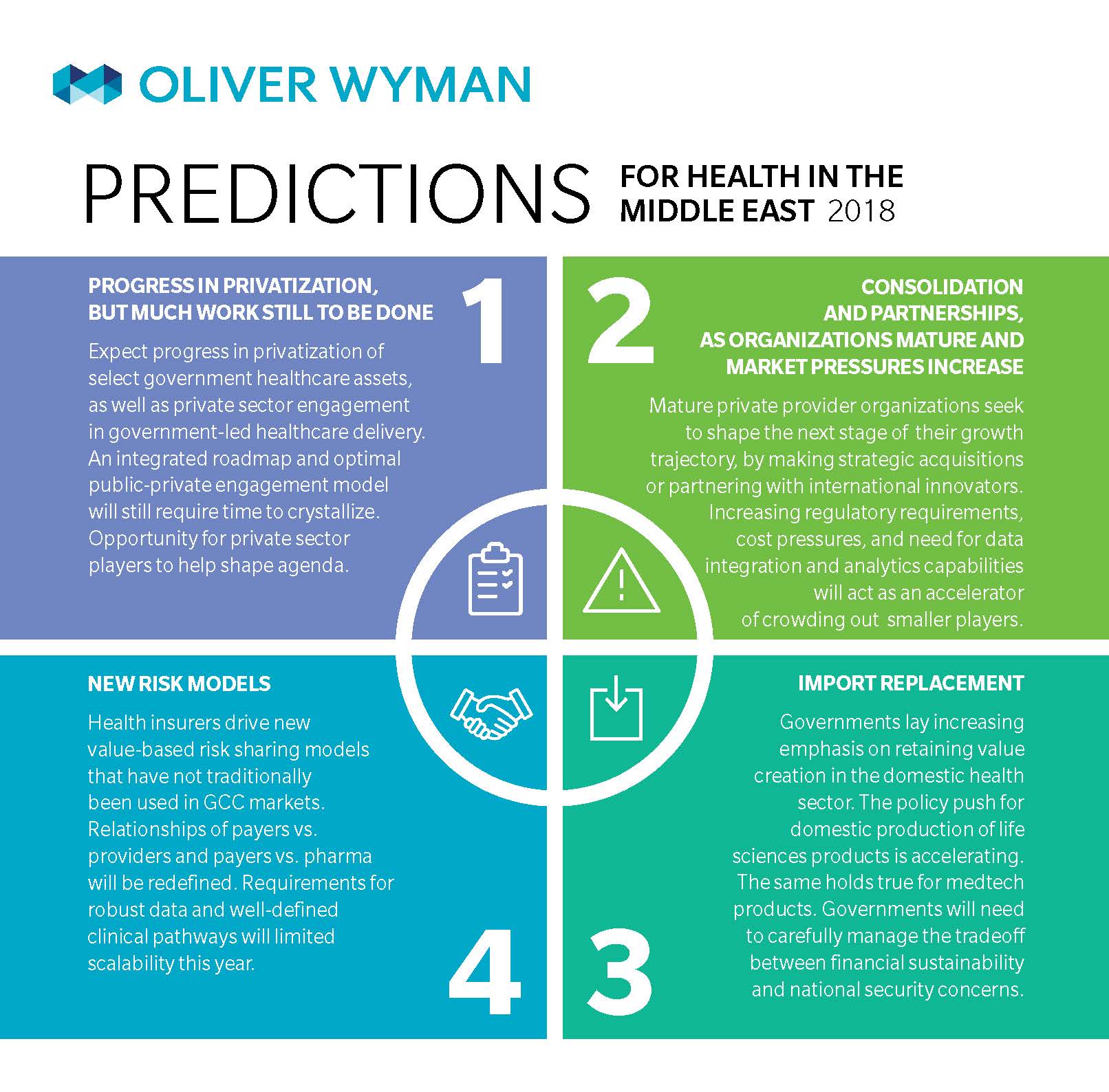Editor's Note: In honor of this year's World Health Day on April 7, 2018, here are four new healthcare trends two of our Dubai-based executives predict will make headway across the Middle East.
1. Progress in Privatization, but Much Work Still to be Done
Expect progress in privatization of select government healthcare assets, as well as private sector engagement in government-led healthcare delivery. An integrated roadmap and optimal public-private engagement model will still require time to crystallize. There will be sizable opportunity for private sector players to shape their agendas.
2. Consolidation and Partnerships, as Organizations Mature and Market Pressures Increase
Mature provider organizations seek to shape the next stage of their growth trajectory, by making strategic acquisitions or partnering with international innovators. Increasing regulatory requirements, cost pressures, and need for data integration & analytics capabilities will act as an accelerator of crowding out smaller players.
3. Import Replacement
Governments lay increasing emphasis on retaining value creation in the domestic health sector. The policy push for domestic production of life sciences products is accelerating. The same holds true for medtech products. Governments will need to carefully manage the tradeoff between financial sustainability and national security concerns.
4. New Risk Models
Health insurers drive new value-based risk sharing models that have not traditionally been used in GCC markets. Relationships of payers versus providers and payers versus pharma will be redefined. Requirements for robust data and well-defined clinical pathways will have limited scalability this year.




